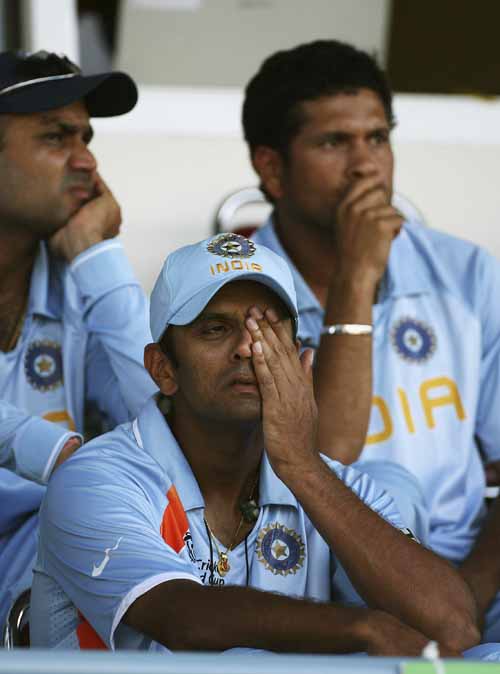Super 8 - Some analysis and a few predictions.
Though my interest was momentarily dulled by India's defeat, I am very excited now about the Super 8. It will begin tomorrow with the very interesting Aus-WI game.
When the tournament began, I predicted the four semi-finalists to be India, Australia, SA, WI. I am horribly off the mark about India. Not many will doubt that Aus and SA will be there. So there are two more spots, for which the serious contenders will be Sri Lanka, WI, England and New Zealand. Ireland and Bangladesh will struggle to win even one match, and are very unlikely to be in the semis.
If we make the safe assumption that all the above six teams are going to win if they play with either Bangladesh or Ireland (I say "if" because SL and WI will not play against BD and Ire), then the points distribution will look something like this, before we count the important matches:
Aus 6
NZ 6
SA 4
WI 4
SL 4
Eng 4
Apart from this, Aus, SA, NZ and Eng will play four matches each while WI and SL will play five matches each. There will be 13 matches in all. So 26 points are at stake. Together with the 28 points above, there will be a total of 54 points divided among 6 teams. 12 points will mean a certain spot in the semis. Anyone with 10 points will almost certainly be in the top four. 8 points should give a pretty good chance of making it to the top four.
Aus and NZ have the advantage of six points, and SL and WI have the advantage of playing 5 matches. Eng and SA have only four points and play only four matches.
I think that England are the weakest team and will not make it to semi final. Of their four matches I expect them to win at most one. I also think Australia and SA will either win all their matches or at least three. I do not see them both losing many matches. Their match on 24th March tells me that they are way ahead of others.
So if I am correct, then the contest for the remaining two spots will be between SL, WI and NZ.
NZ will have six points, so they have a definite advantage. But SL and WI will play against Eng and if they win they will be on par with NZ. So it might all come down to what happens in the three matches between these three teams. Of course any victory against Aus or SA will be huge.
Predictions are always tricky. However, I am going to make them. Aus and SA will surely be in the semi finals, and most likely in the top two slots. I have a feeling that WI is going to be also there. I think that home advantage will be important and in close matches I think WI will be better. Between SL and NZ, I will say NZ. I know SL are favorites now for many people, but I just feel that they have not been tested really. Their batting looks susceptible against quality bowling. Also Muralitharan is their only bowling threat against better batting. NZ look good now, though they have some injury worries. Their general efficiency coupled with very good bowling should see them through.
In any case, all set for an exciting Super 8 stage, with at least 13 great matches to look forward to.


